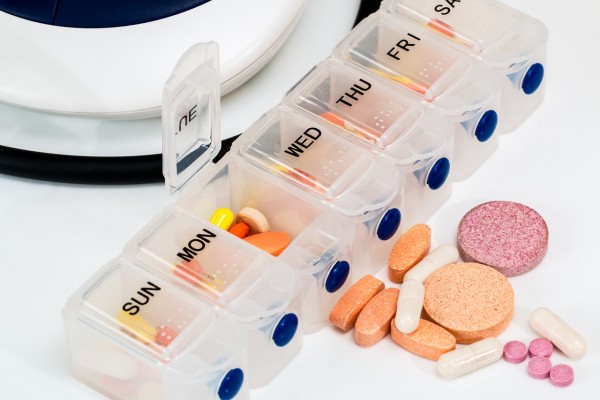Do Vitamins Help in the Body's Fight Against Coronavirus?
The fight against coronavirus has a long way to go, people are continuously looking for ways to stay safe while trying to maintain the "new normal" way of life. From using air purifiers to wearing masks, proper handwashing, and maintaining a safe social distance, doctors are now saying that our medicine cabinet may hold another line of defense against this virus.
It has long been known that a strong immune system can be attributed to good nutrition, but because COVID-19 is a new phenomenon scientists still cannot be certain if a specific supplement can help stave off an infection or make one less severe.
Previous research has shown that if the body is lacking in the recommended levels of certain vitamins and minerals, the immune system will have difficulty fighting off respiratory viruses and other pathogens. Nutrient deficiencies also contribute to higher levels of inflammation and prolong recovery from illness.
Dr. Grace McComsey, Vice President of Research and Associate Chief Scientific Officer at University Hospitals, said that low vitamin D levels in your blood double your risk of dying from COVID if you get it.
According to research, zinc can block the entry of the virus into the cells. However, just because of its benefits, does not mean people should take it in large doses. Too much can also lead to zinc toxicity, and taking high doses of zinc for a long time can lead to copper deficiency, which will cause blood disorders.

Vitamin D
Taking vitamin D with some sort of fat can help the body in its absorption. Some good sources of this fat include avocados, nuts, seeds, eggs, and full-fat dairy products. This vitamin is best taken with a meal.
Vitamin D is a fat-soluble vitamin that is naturally-occurring in some foods. It is also produced when our bodies are exposed to ultraviolet rays which trigger vitamin D synthesis.
Aside from its important role in bone health, it also plays a critical role in immune function.
June McKoy, M.D., associate professor of medicine at Northwestern University Feinberg School of Medicine, said that in countries where vitamin D deficiency is common, the data showed higher cases of COVID-19 infection, with more patients suffering serious health consequences from the illness, including death.
See more: High Suicide Rates Linked to Gender, Sociodemographic Factors, and Antidepressants
Other health conditions that are risk factors of COVID-19 such as, obesity, cardiovascular disease, and type 2 diabetes are also linked to low vitamin D levels.
Due to stay-at-home orders brought about by the coronavirus outbreak, most people have less exposure to sunlight in recent months which may contribute to lower vitamin D levels. The National Institutes of Health (NIH) recommended to at least meet some of their vitamin D needs through sunlight exposure, but given the current situation, a vitamin supplement is recommended to meet the needed range the body needs.
Always consult with a doctor prior to taking any supplement in case it may interact with other medications you're taking.
Zinc
Zinc is an essential trace element for maintaining immune function, with regards to the production of white blood cells which fights off infection as well as inflammation suppression.
As inflammation is a common complication in more severe Covid-19 cases, the way zinc can decrease inflammation of the upper respiratory tract and prevent the virus from replication has the attention of researchers. Studies have shown that zinc therapy is effective in mild and moderate cases of Covid-19, but needs further support from an ongoing prospective randomized controlled trial.
Further reading: Air Purifiers Can Reduce Up to 90% of Infection Risk in Classrooms
Check out more news and information on COVID-19 on MD News Daily.
Oct 09, 2020 07:40 AM EDT





